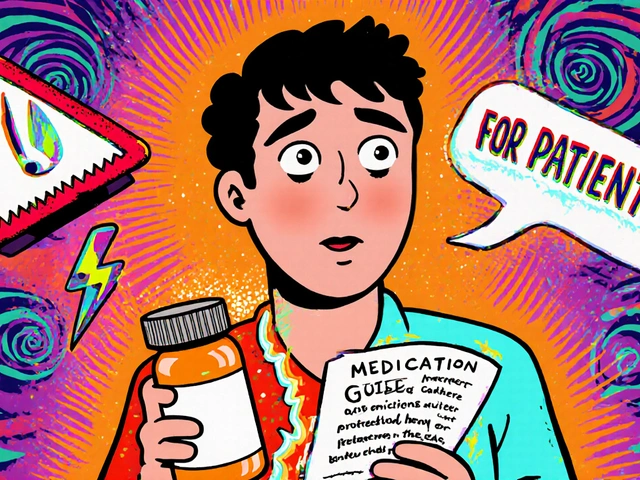Treatment Guides: How to Get Safe Meds & Pick the Right Option
Welcome to our treatment hub. Here you’ll find straight‑to‑the‑point guides that help you buy medicines online without getting scammed, compare drug alternatives, and understand when a certain pill fits your condition.
Quick steps for safe online purchases
First, always check if the pharmacy requires a valid prescription. If a site says “no Rx needed” for a prescription‑only drug, walk away. Look for a US‑based address, a licensed pharmacist’s contact info, and secure https connections. Compare at least two prices – most legitimate sites list their price next to the generic version.
Second, verify the drug’s name and dosage. A common typo can land you with a completely different medication. Use the official FDA label or a trusted database like Drugs.com to match the strength you need.
Choosing between brand, generic, and alternatives
Brand names usually cost more but aren’t always better. For antibiotics such as amoxicillin, many generics work just as well; the key is checking for the right spectrum of activity. When resistance or allergies are a problem, our guides on “Amoxicillin Alternatives” or “Keflex alternatives” break down which drugs to consider and why.
For chronic conditions like depression, you’ll see posts on escitalopram vs other SSRIs, and for hormone issues we cover levothyroxine alternatives. Each article lists pros, cons, common side effects, and tips for talking to your doctor about a switch.
We also include safety notes on steroids, ED meds, and inhalers – everything from checking batch numbers to understanding how long a medication stays in your system. If you’re unsure whether a drug interacts with alcohol, our “Alcohol’s Effects on Anemia” piece explains the exact impact.
Bottom line: start with a prescription from a licensed provider, pick a reputable pharmacy that asks for it, and then use our side‑by‑side comparison tables to decide if a cheaper generic or a different class of drug makes more sense for you.
Need help finding the right article? Browse the list below – each link leads to a step‑by‑step guide with real 2025 prices, red‑flag warnings, and easy ordering tips. Your health journey doesn’t have to be confusing; we’ve stripped out the jargon so you can make confident decisions fast.
Memantine and Chronic Fatigue Syndrome: What We Know So Far
Alright folks, today we're diving into the thrilling world of memantine and its potential link with chronic fatigue syndrome, a wild ride indeed! Strap in, because what we've uncovered so far is as exciting as a double espresso shot on a Monday morning! So turns out, this memantine stuff, usually used for Alzheimer's, might just be the superhero for chronic fatigue syndrome we've all been waiting for. The science gang are still piecing things together, but early signs are promising. Stay tuned for future updates as we continue to unravel this mystery, one research paper at a time!






